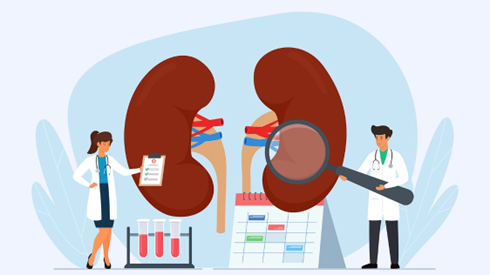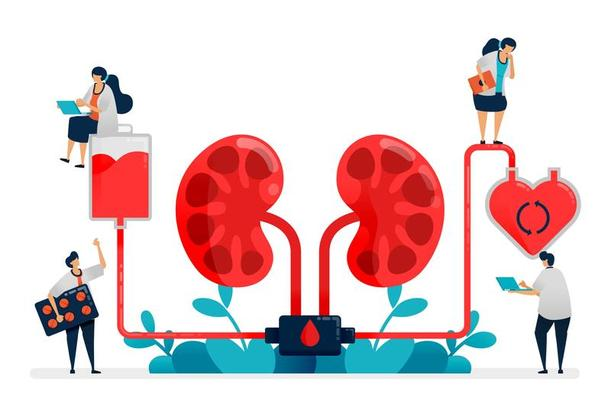Kidney transplants are a lifeline for people with kidney failure, especially those with ESRD . For these people a transplant is not just a lifeline but a path to a much better life. While dialysis is an option, it can’t compare to getting a new healthy kidney as a transplant recipient. This article will break down kidney transplants, deceased donor kidney transplant, their success rates, challenges and how they change lives.
What is a Kidney Transplant?
A kidney transplantation is a surgical procedure where a damaged or failing kidney is replaced with a healthy one from a kidney transplant recipient. The donor can be living or deceased and the new kidney takes over the job of filtering blood and making urine. It’s now recognized as the best treatment for kidney failure, better than long term dialysis.
Healthy Kidneys and What They Do
To understand why someone would need a kidney transplant it’s first important to know what kidneys do. Kidneys are bean shaped organs located on either side of the spine, just below the rib cage. Their main job is to filter waste products from the blood which then becomes urine.
In addition to filtering blood, kidneys also help regulate blood pressure, produce red blood cells and maintain mineral balance in the body. These functions are important for overall health and wellbeing.
Reasons for Kidney Transplantation
There are many reasons why someone may need a kidney transplant:
- End-stage kidney failure (ESRD): This is when both kidneys have
Before we get into the success rates of kidney transplants it’s important to understand the function and importance of kidneys. These bean shaped organs located on either side of the spine are natural filters for blood, removing waste and excess fluids from the body. They also produce hormones that help regulate red blood cell production.

Kidney Failure and Its Impact
When kidneys fail due to chronic disease or sudden injury they can no longer do their job properly. Waste products build up in the body and become toxic and can cause serious health problems like anemia, nerve damage, bone disease and heart disease. Dialysis helps replicate some
Healthy kidneys are important organs that:
- Filter waste, toxins and excess fluids from the blood.
- Maintain electrolyte balance.
- Regulate blood pressure.
- Produce hormones that support red blood cell production.
When kidneys fail the body can’t do these functions and it can be life threatening.
Kidney Diseases That May Need a Transplant
Kidney failure can be sudden or gradual and often due to an underlying disease. Some common conditions that can cause end-stage renal disease and need a kidney transplant are:
- Diabetes: Uncontrolled diabetes can damage the small blood vessels in the kidneys and reduce their ability to filter waste products.
- High Blood Pressure: High blood pressure can strain the blood vessels in the kidneys and cause them to fail over time.
- Glomerulonephritis: Inflammation of the kidney’s filtering units (glomeruli) causing scarring and loss of kidney function.
- Polycystic Kidney Disease(PKD): Inherited disorder causing cysts to form on
- Chronic Kidney Disease (CKD): A condition where kidney function declines over time due to diabetes or other medical conditions.
- Acute Kidney Failure: Sudden loss of kidney function often caused by infections, trauma or specific medications. Some are reversible, others may need long term treatment including dialysis or a transplant.
For patients with ESRD a transplant is often the only solution to get back to normal kidney function.
Types of Kidney Transplants
Living Donor kidney Transplant
In living donor kidney transplant a healthy kidney is surgically removed from a living donor and transplanted into the recipient. The living donor can be related (family member) or unrelated (friend or altruistic stranger). It has better kidney transplant success rates due to the quality of the donated kidney and less complications.
Deceased Donor kidney Transplant
these transplants involve receiving a kidney from someone who has recently passed away. These kidneys are usually acquired through an organ donation program where donors have registered to donate their organs after death. Deceased donor transplants make up the majority of all kidney transplants done.
A healthy kidney is donated by a living person, often a family member or friend. Living donor transplants have better success rates and shorter waiting time as these kidneys perform better than deceased donor kidneys.
The Kidney Transplant Process
1. Evaluation
Patients undergo medical evaluation to confirm their suitability. Some conditions may disqualify individuals:
- Recent cancer diagnosis.
- Severe heart disease.
- Active infections.
- Tobacco or substance abuse.
- Obesity that may increase surgical risk.
2. Being Added to the National Transplant List
Those who are suitable are put on the kidney transplantation waiting list managed by national organizations like United Network for Organ Sharing (UNOS). Waiting time depends on availability of suitable donors, blood type and health status.
3. Matching
When a donor kidney becomes available tests are conducted to ensure compatibility with the recipient. This includes matching blood type and tissue type to reduce the risk of rejection.
4. The Surgery
The damaged kidney is replaced with the donor kidney in a several hour surgery. The recipient’s own kidneys are usually left in place unless medically necessary to remove them.
5. Post-Transplant Care
After surgery patients need close monitoring, specialized care and regular follow up. A multidisciplinary team of nephrologists, surgeons and transplant nurses will support the patient during the recovery.
Success Rates and Complications
successful kidney transplant
A kidney transplant gives new life to individuals with kidney disease. Kidney transplantation is where transplant surgeons put a healthy kidney from a donor into a patient with kidney failure. This is often the best solution for end stage renal disease.
The surgery takes several hours and requires matching of the donor organ to the recipient to reduce the risk of kidney transplant rejection. This involves compatibility testing, blood type and tissue matching.
Donor kidneys are from living donors or deceased donors. Deceased donor organs are for those without a living donor. How many kidney transplants can one have depends on individual circumstances and medical evaluation.
Post transplant kidney transplant patients often have better quality of life, free from dialysis. Adherence to immunosuppressive medications is crucial to prevent rejection and maintain kidney function to ensure the success of the transplant.
Success Rates
- Global data shows living donor transplant has a 1 year success rate of 95%
- Deceased donor transplants have a slightly lower 1 year success rate of 90-92%.
These numbers show how far immunosuppressive therapy, surgical techniques and post-operative care have come.
Complications and Management
While there are successful kidney transplants, complications can occur:
- Rejection: Immunosuppressive medications can prevent this but long term adherence is key.
- Infections: A weakened immune system makes one more susceptible, so prevention and prompt treatment of infections is important.
- Diabetes or high blood pressure: Risk factors that need to be monitored and managed post transplant.
Life After a Kidney Transplant
Getting a new kidney means being free from dialysis and a more active life.
Personal Stories
Many recipients can go back to work, enjoy hobbies and take active roles in their family which was previously limited by kidney failure and dialysis treatments.
Lifestyle and Medication
To ensure long term transplant success recipients must:
- Take transplant medications daily.
- Follow a healthy lifestyle, including a balanced diet and regular exercise.
- Avoid smoking and minimize alcohol to the immune system.
Most say it’s a small price to pay for the big improvement in their life and to live a normal life.

Financial and Support
While a transplanted kidney can be life changing, the cost can be overwhelming for some.
Cost
The procedure itself can cost up to $300,000 in the US, including pre and post operative care. Medication cost after kidney transplant surgery can also add up but insurance often covers part or most of the cost.
Insurance and Financial Assistance
Patients should work with their healthcare providers to understand what is covered. Financial assistance programs from non-profits and healthcare organizations can also help.
Economic Benefits of Transplants over Dialysis
Studies show that kidney transplants are more cost effective than long term dialysis so this is a health and financial benefit in the long run.
What an Ultrasound Can Reveal
Ultrasound is a non invasive diagnostic tool used during the transplant process. It helps:
- Check the health and size of kidneys.
- Detect any abnormalities or blockages.
- Monitor blood flow to and from the transplanted kidney post surgery.
Patient and Donor Support
Organizations like National Kidney Foundation, American Transplant Foundation and The Organ Donation & Transplantation Alliance have resources to support patients and donors throughout the transplant process in the transplant center.
Support Groups
Support groups are very helpful in helping individuals cope with the physical and emotional challenges of getting a kidney transplant. These groups provide a safe space to share experiences, advice and encouragement.
Education and Information
Organ donation and transplantation educational materials are available from these organizations. They also have educational events such as webinars, seminars and workshops to help individuals understand the process better. Many also have financial assistance programs for
For those waiting for transplants, joining a support group can be comforting and guiding. Sharing with others who have gone through the process can ease anxiety and build confidence. Many also have resources such as counseling services, financial advisory and educational support.
Why Thousands of Patients Choose Kidney Transplants
Kidney transplants saves lives, extends lifespans and restores quality of life for patients who were hopeless. Whether you’re considering a transplant or just want to learn more to support a loved one, remember information and preparation is your best friend.
If you want to learn more, contact your healthcare provider or connect with a local transplant community to get answers and peace of mind.
